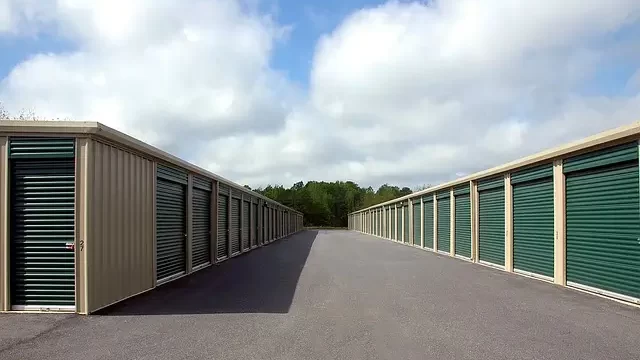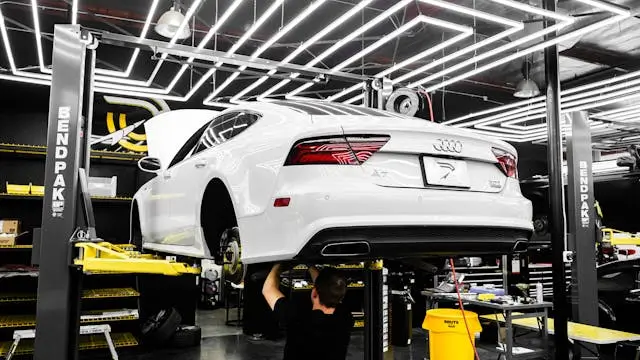Simple, boring businesses can be money mines.
When people think of starting a profitable business, they almost always try to look for something new, innovative, modern and completely disregard obvious, tried and tested, proven-to-work business modules.
While looking for lucrative opportunities in new and emerging fields is a smart move, it often comes with a lot more complications, learning curves and challenges.
Therefore, looking into simple, boring and mundane yet stable and profitable businesses can prove to be a smart decision. Because those are often overlooked, thus less competitive.
With that being said …
What is a boring business anyway?
Well, a boring business is generally one that:
- Simple to operate yet necessary
- Been around for a long period of time (stood the test)
- Haven’t changed or innovated much, indicating stability
- Has little competition
Simply put, boring businesses are generally ones that lack glamour/sexiness, but generate consistent profits.
For example, take the waste management industry. With a global market cap of more than $1.3 trillion, it is one of the biggest industries in the world. It is simple, more or less straight forward, yet necessary and lucrative.
Advantages of boring businesses
1 – Stability and resilience.
One of the advantages of owning a basic, straight forward business is the fact that it usually comes with stability and resilience during economic downturns.
Basic, boring businesses are usually a “need” not just a “want” for society. And so, even when the economy is not doing well, those businesses still function normally. Because people need them.
2 – Low competition.
Another advantage of owning one of these businesses is the low level of competition due to people perceiving them to be uninteresting and, you guessed it, boring.
3 – Margin for innovation.
Also there is a huge margin for innovation when it comes to these stale businesses.
Take for example, the plumbing service in your area, are they on time, proactive and have advanced billing systems?
Most likely not, which is an opportunity for people who might be considering a plumbing business venture to charge a premium for better services.
4 – Potential for recurring revenue
Some of the businesses on this list that people deem to be uninteresting can actually make for a solid source of recurring revenue.
So without further ado, let’s dive into the …
List of boring businesses that make money
1 – Vending machines

This business model is as simple as it sounds. All you have to do is buy vending machines, stock them with inventory and place them in specific locations for sales to start rolling in.
The process might be straightforward, but executing it strategically is key to a successful vending machines venture.
For starters, the type of inventory you’ll be selling will dictate the kind of vending machine you’ll be using.
There are three main options:
- Food and beverage vending: For snacks and drinks
- Bulk vending: Gum balls, stickers or rubber balls
- Specialty vending: Like hot beverages, travel essentials and tobacco.
After choosing the right vending machine for your inventory, the question that comes up next is: how to find places that need vending machines?
For that, you can use Data-Axle to locate potential business opportunities in your area.
Their database helps you locate hundreds of local businesses.
It also allows you to search by a ton of demographic filters, years in business and the numbers of employees. So, it is a great tool to find local business locations that may need a vending machine.
Not to mention that it is a free tool to use although, you do need a library card for access.
To star with though, here is a list of locations that will likely need/use a vending machine:
- School
- Bookstore
- Doctor’s Office
- Business Office Building
- Airports
- Any type of waiting Room
- Auto Dealership
- Veteran’s Affairs Facility
- Tourist Attraction
- Fraternity/Sorority
- Bingo Hall
- Muffler Shop
- Bus Station
- Railroad Station
- Humane Society
- Youth Center
- Government Office
- Health Club
- Ice Skating Rink
- Motor Vehicle Division
- Hospital
- Assisted Living Center
- Gift Shop
- Medical Building
- Truck Stop
- Dental Office
- Meeting Hall
- Recreation Center
- Manufacturing Plant
- Zoo
- College/University
- Auto Brake Shop
- Ski Resort
- Trucking Company
- Public Utility Office
- Department Store
- Military Treatment Facility
- Police Station
- Furniture Store
- Roller Skating Rink
- Laundromat
- Bank
- Military Reserve or Guard Center
- Private School
- Gym
- Hotel
- Veterinary office
- Golf Course Lounge
- Tire Store
- Dry Cleaner
- Community Center
- Motorcycle Shop
- Dormitory
- Apartment Building
- Stock Brokerage
- Miniature Golf
- Nursing Homes or Retirement Homes
- Computer Store
- Library
- Senior Center
- Motel
- Fire Station
- Car Wash
- Driver’s License Division
- Community Swimming Pool
- Industrial Park
- Amusement Park
- Warehouse
- Rental Yard
- Bowling Alley
- Telemarketing Office
After deciding on a location, all that’s left to do is to contact the manager or the owner of that business and present your offer to place your vending machines in their facility.
And, even if they have an old one you can always ask to replace it with a new advanced one that accepts card, mobile and cash payments.
It is recommended that you treat this as professionally as possible. So, you dress professionally, bring your product samples, business cards and vending machine flyers for illustration.
Worth noting that, most if not all will ask for a percentage of the profit (around 10%).
Provided that you decided on the vending machine and the location, all that’s left is stocking your inventory in accordance with what’s in demand in every location.
For scalability, once you’ve got more than 5 vending machines in different locations, consider investing in a vending management system (VMS).
That way, you can remotely manage your machines, monitor your inventory and track revenue without having to go back and forth between all the locations.
Here is a guide and a book on how to start a vending machine business
Book: Start a vending machines business in 7 steps (This is an amazon affiliate link)
2 – Storage Facilities

Ever had excess belongings and wished you had enough space to store them. That’s what storage facilities are for. The concept is simple yet very practical.
Provide a secure space for people and businesses to store their stuff, and get paid for it.
People can use different size units to store appliances, furniture, art, TVs, and even vehicles or boats.
The demand for storage space is driven by factors like downsizing, decluttering, and the need for temporary storage during moves or renovations. The business model often involves long-term leases, providing a steady income.
Storage facilities can also be used by small businesses to store their work equipment, supplies and inventory. Which can help in maintaining a healthy rate of occupancy.
The profit margin of this business model varies depending on different factors, but it typically hovers at around 11%. Which is good relative to other small business ventures.
It’s also a scalable business model. As demand increases, additional units can be constructed or acquired which increases the overall cash flow.
Can also add climate-controlled units, enhance security features and add smart tech (like app based access) to attract higher end costumers.
Not to mention, storage facilities can also be operated on a subscription-based model where people pay rent fees on a weekly, monthly or even yearly basis. That way, it can be turned into a predictable and steady source of recurring income.
Here is a guide on how to start a self-storage business
3 – Auto repair services

If you’re into cars and have the tools and the skills needed to repair and maintain them, then this business model is for you.
You can start with a privately owned independent garage where you repair cars for the locals and charge for it.
Once you gain a good reputation in your community and start gaining some momentum, you can then scale the business by adding new repair services like wheel alignments, brakes repair and transmission.
Just make sure not to over hire in the process of scaling up as that can put a dent on the profitability of the business. Remember, the goal is to streamline the process.
Given that auto repair shops are considered an essential service, grants it a wide range of costumer base.
With a healthy profit margin of 38% accounting for both auto parts and labor, this business model is definitely one to consider.
Here is a step by step guide on how to start an auto repair business
4 – Car washes

Another ordinary yet still profitable car-related business is a car-wash venture.
People will never stop wanting their cars washed, and so the cleaner, dried, shinier and faster you can get that to happen the more lucrative a business it can be for you.
The two factors that will affect the profitability of a car-wash business are:
Location, which usually correlates to the number of cars washed (frequency of costumers) in a given period and, the wash model (automated, self-service, touchless or full-service).
Generally speaking, the average profit margin for a car-wash business in the US, depending on the type of car-wash model, ranges from 35% to 67%. Which is a healthy profit margin for a business most people deem to be mundane and uninteresting.
On the scalability front, this business model can be further advanced in many ways.
One of which, and perhaps the most obvious, is by opening and/or buying new locations in high traffic areas.
Other, not so obvious way, to scale up a carwash venture is to try and develop your team by giving each party a specific role, providing them with good guidance, and familiarizing new hires with all the different aspects of the business.
Also, once you leave the startup territory, you should aim to provide your teams with good benefits and work conditions. Doing this will encourage the staff to stick with you and do their work to the best of their ability.
Done the right way, this boring business model can be a great source of semi-passive income.
Here is an article on how to start a car-wash business
5 – Waste management

This is one of the most needed businesses in today’s urban societies and, will still be for as long as people produce waste.
By offering efficient disposal and recycling solutions, waste management businesses can continue to make a profit.
Waste management businesses make money by recycling throwaways into raw materials that can be used to make new products.
Moreover, the hauling process ends with disposing tons of garbage in landfills where it decomposes resulting in what’s called landfill gasses (LFGs).
Those gasses can be used to produce electricity.
They can also be converted into renewable natural gas (RNG) to power vehicles or sell to third parties – which adds to the profit margin.
So, the statement; One man’s trash is another man’s treasure couldn’t be more true for waste management businesses.
Here is a guide on how to start a waste management business
6 – Laundromats

Though not the most exciting business, offer reliable revenue through a service that remains in constant demand.
People will always need clean clothes, and not everyone has access to in-home laundry facilities.
Laundromats cater to students, apartment dwellers, and those in transition between homes, which ensures a steady flow of customers.
The primary source of income stems from the use of washing machines and dryers.
However, additional revenue can be generated from placed vending machines, detergent sales, and offering premium services like wash-and-fold.
For scalability, laundromats owners can upgrade to high-efficiency, eco-friendly machines that can reduce operational costs and appeal to more costumers.
Also, introducing mobile app payments and loyalty programs can enhance customer experience and retention.
Moreover, diversifying services to include dry cleaning or pickup and delivery can also expand the customer base.
Here is a guide on how to start laundromat a business
7 – Pest Control Companies

Pest control is a quintessential example of a boring business that consistently generates profits. Despite its lack of glamour, the demand for pest control services remains steady across residential, commercial, and industrial sectors.
This business model is a money maker simply because pest infestation is a recurring problem that requires professional intervention.
The necessity of these services ensures a constant customer base. Seasonal fluctuations, such as increased pest activity in warmer months, also drive demand.
Additionally, frequent service contracts, emergency call-outs, and specialized treatments (like termite control or bed bug extermination) provide diverse revenue streams.
Which means that, investing in effective and eco-friendly pest control methods can attract more customers.
Also, expanding into new markets, such as organic pest control or wildlife management, can further boost profitability.
Here is a guide on how to start a pest control company
Challenges and How to Overcome Them
Despite their potential for stable and consistent revenue, these boring businesses usually come with their own set of unique challenges.
Among which, is low brand visibility. Boring business ventures often struggle with brand recognition because of the perceived lack of appeal compared to more glamorous industries.
Small business owners can tackle this issue by working on their business’s online presence through well designed websites and social media profiles, investing in local SEO and engaging with communities by participating in local events and sponsoring activities.
Another thing these so called dull businesses struggle with is attracting good talent. Mainly because of the perceived lack of excitement and growth opportunities.
Highlighting the benefits of working in a stable, recession-resistant industry while also offering good compensation and benefits are a few of the ways business owners can address this issue.
Acquiring and retaining costumers, is another very important challenge these businesses face.
Normally, the solution to this challenge lies in implementing good customer service and loyalty programs which encourage customers to come back for repeated business.
Additionally, managing and controlling operational costs usually come with their own headaches for these kind of business.
Given that most enter the market with limited resources, this aspect demands special attention from small business owners.
To manage and control costs you should always be monitoring and optimizing your business expenses. Investing in automating technology that can efficiently streamline the workflow and perform routine tasks is always a good idea.
In addition to that, negotiating better deals with suppliers, can bring the cost down and/or increase the profit margin which is always a good thing. Determining these issues and addressing them can help small “boring” businesses succeed. Not only that, but by implementing these solutions early on, you’ll also be setting up your business for sustained growth.
Future Outlook
The future of these dull industries is filled with potential that’s driven mainly by technology and the changing consumer behavior.
The most obvious trend is the adoption of automation in almost all businesses including mundane industries.
Automation is helping these businesses develop faster by streamlining the process, lowering costs and increasing efficiency.
Largely due to demands from environmentally conscious customers and regulatory bodies, boring businesses are also putting more emphasis on sustainability and eco-friendly practices. That way they may attract more clients and potentially even government incentives.
Another trend that’s prevailing quickly, even among dull industries, is the constant attempt in tailoring and personalizing services in order to enhance customer experience and secure recurring business.
And it’s working as more and more businesses now are adopting subscription based business models to insure a predictable and a steady stream of income.
By following these trends, and embracing innovation, sustainability, and customer-centric approaches, businesses in general and boring businesses in particular can evolve and thrive in the future.
Final thoughts.
When evaluating business opportunities, exploring boring and uninteresting ideas can lead to a profitable venture that might be boring though, stable.
Mundane businesses are also often overlooked when evaluating opportunities which makes them relatively less competitive.
Additionally, given the essential nature of these type of businesses, they normally don’t feel the need to change and innovate in order to attract more customers and do more business. For they are in demand regardless.
That means, with a bit of innovation, tech integration and automation you could increase your customer base, widen your profit margin by lowering costs, scale the business and create opportunities for recurring income streams.
In short, boring businesses can form great ventures that are not only profitable but, also stable, scalable and have a proven track record of constant performance.


